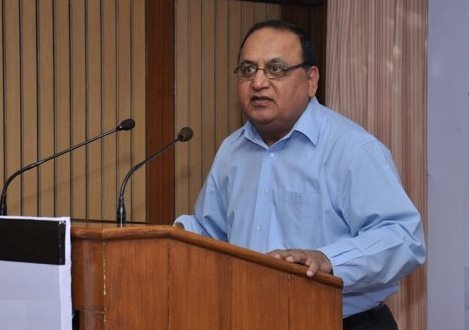
Ministry of Health & Family Welfare
By Dr. Damodar Bachani,?Deputy Commissioner (NCD)
Ministry of Health & Family Welfare
Non-communicable diseases (NCDs) like diabetes, high blood pressure, heart diseases and cancer are increasingly causing deaths in India. A matter of concern is that many instances of the young adults are getting these diseases not only in all strata of society in both urban and rural populations. It is estimated that heart diseases and diabetes alone are expected to reduce global GDP by 5%. Considering the high cost of medicines and longer duration of treatment of non-communicable diseases, a greater financial burden is being faced particularly by low income groups. Acute events of heart diseases are associated with major health expenses owing to high cost of drugs, therapeutic procedures, other hospital expenses and wage losses. The treatment costs for an individual with diabetes are 15?25% of their household earnings. One in four Indian families in which a family member has heart disease or stroke has catastrophic expenditure, pushing 10% of these families into poverty. Where families have no access to affordable care, they forego care or risk financial ruin; the poor end up suffering the worst.
Determinants of Non-communicable Diseases
An unprecedented opportunity exists to improve health in some of the world’s poorest and most vulnerable communities by tackling the root causes of disease and health inequalities. The most powerful of these causes are the social conditions in which people live and work. Poor education, stress, early life events, social exclusion, unemployment, poor housing, transportation, food habits, use of tobacco and alcohol, addiction etc. affect health throughout life. People further down the social ladder usually run at least twice the risk of serious illness and premature death as those near the top. The longer people live in stressful economic and social circumstances, the greater the physiological wear and tear they suffer, and the less likely they are to enjoy a healthy old age.
Chronic diseases are widespread in people who are younger than 45 years and in poorer populations. Whereas socioeconomic development tends to be associated with healthy behaviors, rapidly improving socioeconomic status in India is associated with a reduction of physical activity and increased rates of obesity and diabetes. The emerging pattern in India is therefore characterized by an initial uptake of harmful health behaviors in the early phase of socioeconomic development. Such behaviors include increased consumption of energy-dense foods and reduced physical activity, increased exposure to risk factors for road traffic injury such as driving above the speed limit, after intake of alcohol, or without appropriate safety precautions like wearing seat belts or motorcycle helmets.
Health-damaging behaviors such as smoking, alcohol, consuming unhealthy diets (rich in salt, sugar and fats, and low in vegetables and fruits) are also found to be common among the low socioeconomic group. However, personal behaviors are not only a matter of personal choice, but may be driven by factors such as higher levels of urbanization, technological change and market forces.
Prevention of Non-communicable Diseases
There is adequate evidence that NCDs are major contributors to high suffering and deaths in India. Risk factors including tobacco and alcohol use, lack of physical activity, unhealthy diet, obesity, stress and environmental factors contribute to high disease burden of NCDs which are modifiable factors and can be controlled to reduce their occurrence. Many of the NCDs like Cancer, Diabetes, Heart Diseases, Mental Disorders and problems relating to ageing are not only chronic in nature but also may have long pre-disease period where effective life style changes can turn around health status of individuals. Costs borne by the affected individuals and families may be catastrophic as treatment is long term and expensive. Simple affordable changes in life style can prevent or even reverse these diseases.
These include:
??? ?Healthy diet: Low intake of sugar (avoid artificial drinks, colas, sweets), salt (avoid spicy food, pickles), saturated fats (avoid solid fats ghee and butter) and avoid trans-fats present in fried foods; Take more leafy vegetables and fruits
??? ?Regular physical activity
??? ?Control Obesity
??? ?Avoidance of tobacco (smoking as well as chewing tobacco)
??? ?Avoidance of alcohol
??? ?Relaxation and reducing stress
??? ?Regular check up to rule out NCDs (at least once a year after the age of 30 years). If any other family member has NCDs, you are at high risk of getting them







